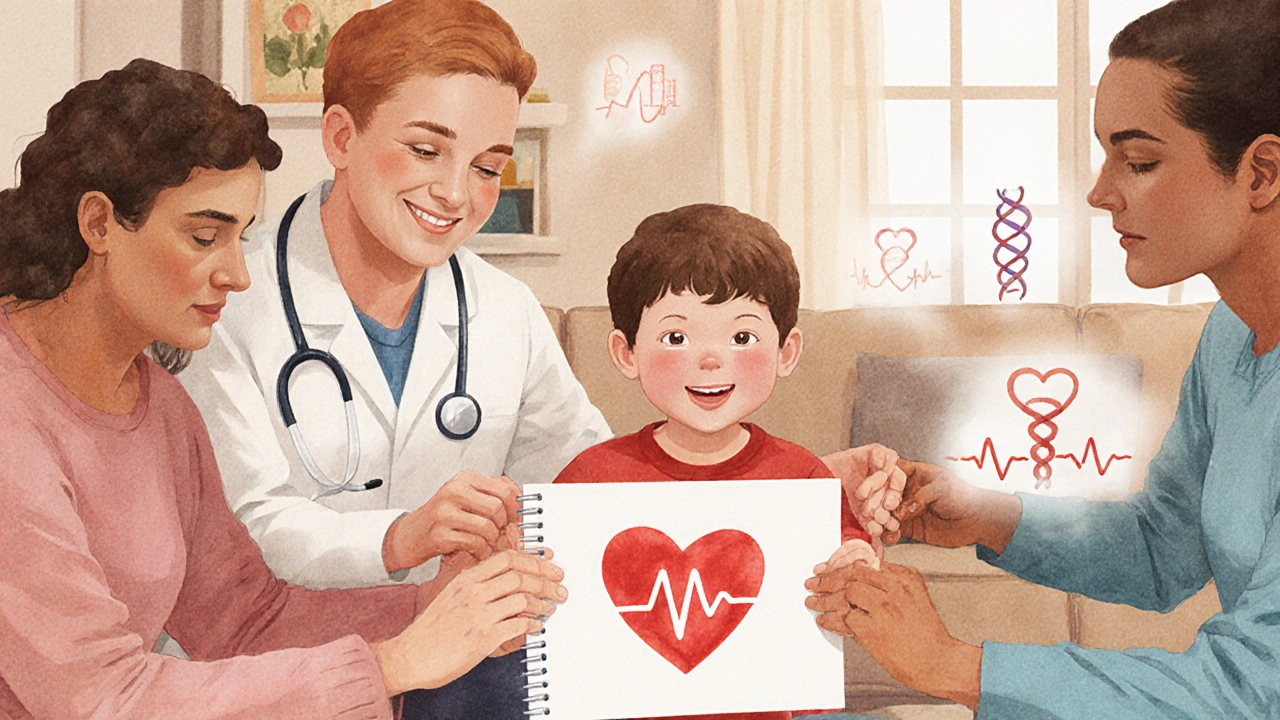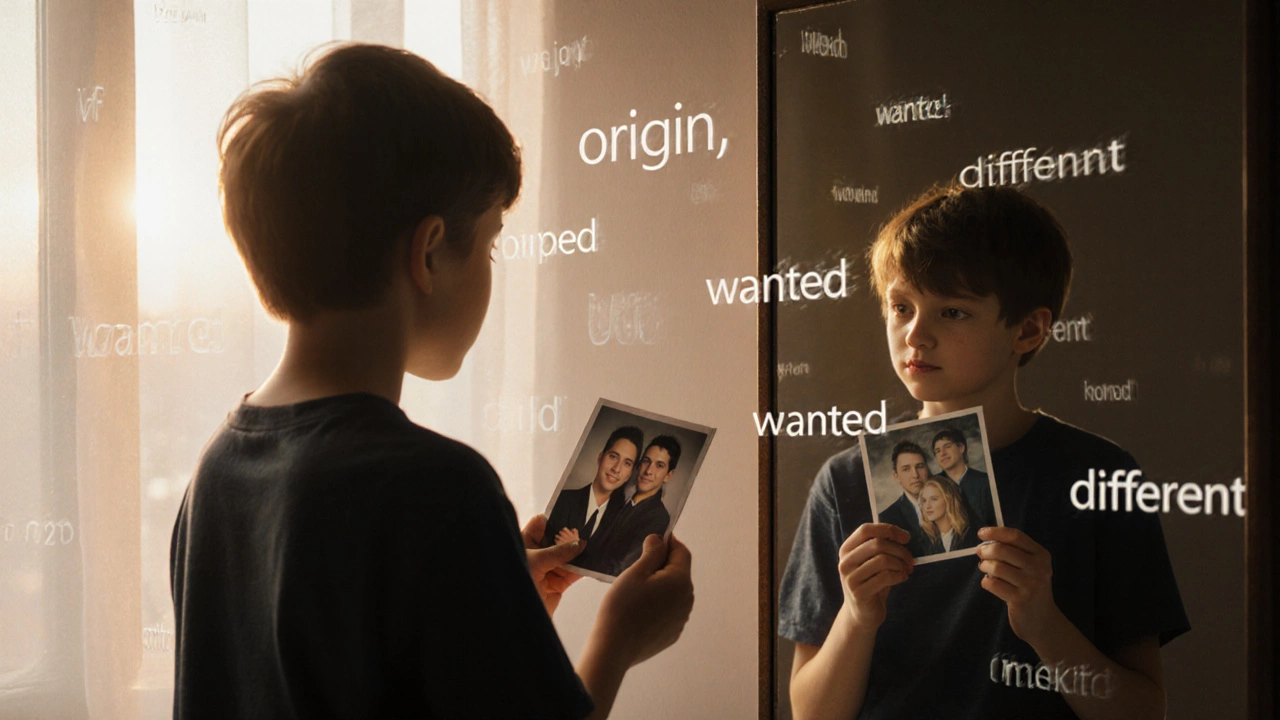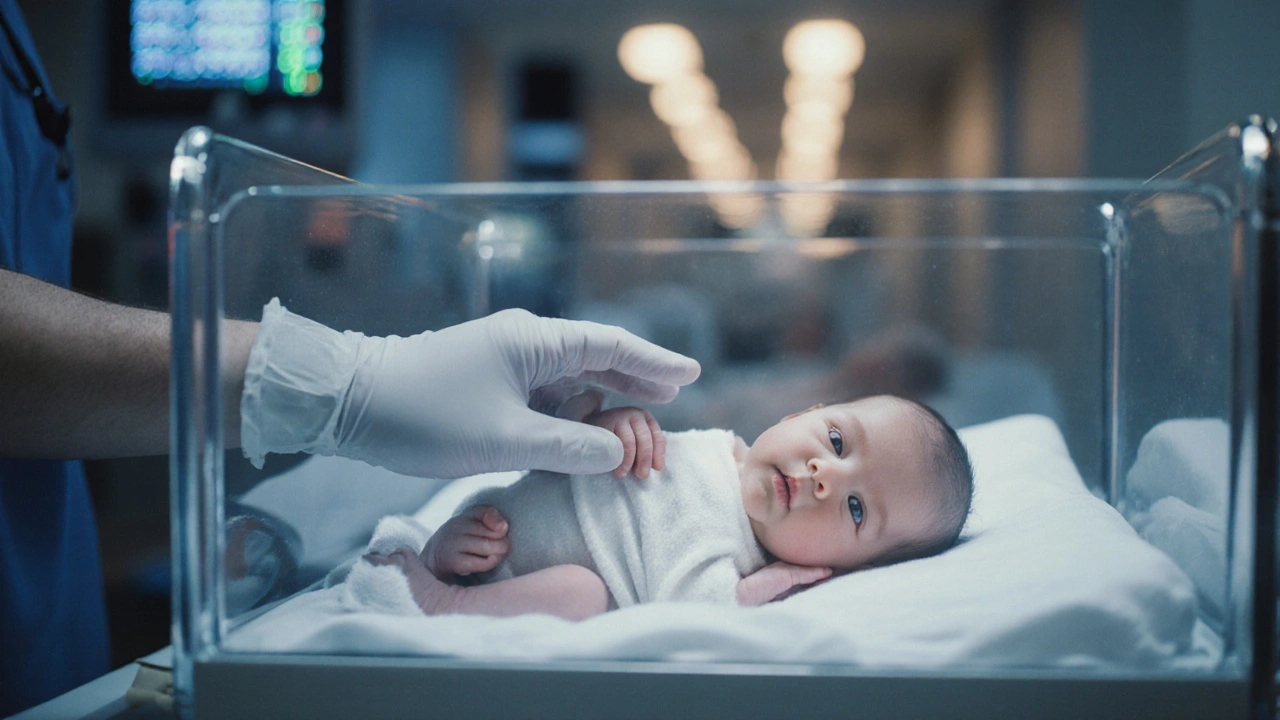IVF Risk Calculator
Understand Your Risk Factors
This tool estimates the relative health risks for IVF-conceived children based on medical research. Remember: most IVF children are healthy, and many risks are related to underlying infertility rather than IVF itself.
Input Your Situation
Estimated Health Risks
Birth Defects
Preterm Birth
Low Birth Weight
Key Insights from Research
When couples turn to IVF to build a family, they’re often focused on the miracle of conception - the first heartbeat, the ultrasound image, the long-awaited baby. But behind the joy, there are questions no one talks about: What are the real negative consequences of IVF children? Are these kids more at risk? Do they face health problems their peers don’t? And if so, how big is the risk?
IVF Children and Birth Defects: The Numbers Don’t Lie
Studies from the Centers for Disease Control and Prevention (CDC) and the European Society of Human Reproduction and Embryology (ESHRE) show that IVF-conceived children have a slightly higher chance of being born with birth defects - about 1.3 to 1.5 times more than naturally conceived babies. That sounds scary, but let’s put it in perspective: the baseline risk for any baby is around 3%. For IVF babies, it’s closer to 4%. That means 96 out of 100 IVF children are born without major physical abnormalities.
The most common defects linked to IVF include heart problems, cleft lip or palate, and gastrointestinal issues. But here’s what most people miss: the increased risk isn’t necessarily because IVF itself is dangerous. It’s often tied to the underlying reasons couples need IVF in the first place - older maternal age, genetic conditions, or infertility caused by hormonal imbalances or endometriosis. These factors, not the lab process, are often the real culprits.
Preterm Birth and Low Birth Weight: The Most Common Risks
One of the clearest patterns in IVF pregnancies is the higher rate of preterm birth (before 37 weeks) and low birth weight (under 2.5 kg). About 12-15% of IVF babies are born preterm, compared to 8-10% in the general population. This isn’t because the embryo was created in a petri dish - it’s because IVF leads to more multiple pregnancies. Even with single embryo transfer becoming standard, some clinics still transfer more than one to boost success rates.
Preterm babies face real challenges: breathing problems, feeding difficulties, developmental delays, and longer hospital stays. A 2023 study in The Lancet tracked over 100,000 IVF children in Europe and found that even singletons born via IVF had a 20% higher chance of being born underweight than naturally conceived singletons. That’s small, but it’s consistent across countries.
Developmental Delays: Are IVF Kids Slower to Reach Milestones?
Parents often worry: Will my IVF child walk, talk, or learn like other kids? The answer is mostly yes - but with a small statistical difference.
Large-scale studies from Australia, Sweden, and the U.S. show that IVF children are slightly more likely to experience mild delays in language development, motor skills, or social interaction by age 3. But by age 5, most catch up. A 2024 meta-analysis of 12 studies involving 18,000 children found that only 5-7% of IVF kids showed persistent delays - compared to 3-5% in the general population. That’s a small gap, and it’s often linked to prematurity or low birth weight, not the IVF procedure itself.
Importantly, these delays are not the same as autism or intellectual disability. There’s no proven link between IVF and autism spectrum disorder. Some early studies suggested a connection, but later research with better controls - accounting for parental age, multiple births, and underlying infertility - found no significant increase.

Long-Term Health: Higher Risk of Chronic Conditions?
Now, the big question: Do IVF children grow up with more health problems?
Research is still emerging, but early data from the UK Biobank and the Dutch IVF cohort show a small but measurable increase in risks for certain conditions later in life. IVF-conceived individuals have a slightly higher chance of developing high blood pressure, elevated blood sugar, and altered fat metabolism in their 20s and 30s. Why? Scientists think it might be due to epigenetic changes - how the embryo’s genes are turned on or off during early development in the lab.
It’s not that IVF kids are doomed. Their risks are still low. For example, the chance of developing type 2 diabetes by age 30 is less than 2% for IVF children, compared to 1.5% for naturally conceived peers. But it’s enough to warrant monitoring. Pediatricians now recommend routine blood pressure and glucose checks for IVF-born adults, just like they do for kids born small or preterm.
Psychological and Emotional Impact: The Hidden Layer
Most discussions stop at physical health. But what about the child’s emotional world?
Studies show that IVF children are just as emotionally healthy as their peers. They don’t have higher rates of anxiety, depression, or behavioral problems. In fact, many IVF families report stronger bonds - parents often invest more time, attention, and emotional energy into raising these children.
But there’s a quiet challenge: identity. Some adolescents, especially those who learned about their IVF conception later in life, report confusion or feelings of being "different." A 2022 study in Human Reproduction found that 18% of teens conceived through IVF with donor gametes struggled with questions about biological origins. Open, honest conversations from an early age - even just saying, "You were very wanted and helped by doctors to be born" - make a huge difference.

What About the Parents? The Ripple Effect
It’s not just the child. The stress of IVF can change family dynamics. Parents who go through multiple failed cycles often carry guilt, exhaustion, or emotional burnout. That can affect parenting style - some become overly protective, others emotionally distant. A 2023 study in Bangalore found that mothers who had undergone three or more IVF cycles were twice as likely to report high stress levels at age 5 of their child, even if the child was healthy.
That’s why support doesn’t end at the birth. Counseling for parents during pregnancy and after delivery is just as important as the medical treatment.
Is IVF Worth the Risk?
Let’s be clear: the risks of IVF are small. Most IVF children are born healthy, grow up strong, and live full lives. The slight increase in health risks is comparable to the risks of having a baby after age 35 - something many women do without thinking twice.
What matters most isn’t how the baby was conceived, but how they’re raised. Access to good nutrition, early childhood education, regular check-ups, and loving support matter far more than the lab where the embryo formed.
If you’re considering IVF, don’t let fear of side effects stop you. But do go in with eyes open. Ask your doctor about single embryo transfer. Push for genetic screening if you’re over 35. Talk to a counselor. And remember - the goal isn’t just to have a baby. It’s to raise a healthy, happy child. IVF can help you do that. It’s not perfect, but for millions of families, it’s the only path forward.
Are IVF children more likely to have autism?
No, current research shows no direct link between IVF and autism. Early studies that suggested a connection didn’t account for factors like parental age, infertility causes, or multiple births. When researchers adjusted for these, the risk disappeared. IVF children are not at higher risk for autism than naturally conceived children.
Do IVF babies have weaker immune systems?
There’s no evidence that IVF babies have weaker immune systems. They get the same vaccines, respond the same way to infections, and recover just as quickly. Some preterm IVF babies may be more vulnerable early on simply because they were born early - not because of the IVF process itself.
Is IVF safe for the mother’s long-term health?
IVF itself doesn’t cause cancer or long-term harm to the mother. The hormones used are temporary and similar to those naturally produced during a menstrual cycle. Some women experience ovarian hyperstimulation syndrome (OHSS), but it’s rare and treatable. Long-term studies show no increased risk of breast, ovarian, or uterine cancer in women who’ve had IVF.
Can IVF cause learning disabilities?
IVF does not cause learning disabilities like dyslexia or ADHD. Some children may show mild delays in speech or motor skills early on, especially if born preterm. But by school age, most catch up completely. There’s no evidence that IVF affects brain structure or cognitive potential.
Should I avoid IVF because of these risks?
No - unless you have a specific medical reason not to. The risks are small and manageable. For couples struggling with infertility, IVF remains the most effective treatment. The benefits - becoming a parent - far outweigh the small statistical risks. Talk to your doctor about minimizing risks: single embryo transfer, genetic testing, and early prenatal care can make a big difference.
